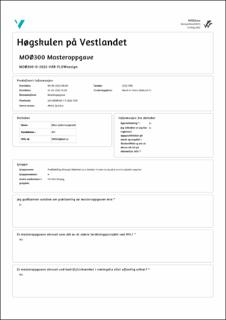Profitability through Material as a Service: A case study of a marine plastic supplier
Master thesis
Permanent lenke
https://hdl.handle.net/11250/3015144Utgivelsesdato
2022Metadata
Vis full innførselSamlinger
Sammendrag
Profitability is crucial for the survival of any business. In the circular economy, however, it is challenging for emerging business models to be profitable. In this master’s thesis, we have made an effort to advance research into how such business models may obtain profitability, through a case study of the marine plastic supplier Ogoori. The firm is a startup that has adopted a new circular business model: Material as a Service.
Material as a Service is a concept in which material suppliers provide clients with their components through services. This entails granting access to the resources without a transfer in ownership. To investigate how this business model may generate profit, we have formulated the following research question:
“How can companies that offer Material as a Service be profitable?”
The research question was answered through two sub-questions: (1) “Which value can companies create and deliver through adopting Material as a Service?” and (2) “How can value capture be achieved with Material as a Service?”
The motivation for performing this research is that we believe that Material as a Service has the potential to have a positive impact on the environment. The circular economy is an economic system which has a goal to pursue sustainable development, and Material as a Service is a part of this system. The existence of this business model is therefore assumed to help the environment become more sustainable, and thus companies employing this model should be maintained by achieving profitability.
For conducting this master’s thesis, we have used qualitative methods. In particular, we have collected new data through observation and interviews, as well as pre-existing data from multiple platforms. With our thesis, we came to the main conclusion that businesses employing Material as a Service should acquire new and long-term clients, while also meeting their demands, in order to generate profitability. This can be accomplished by performing various actions, and we found the following three activities to be the most important: changing consumers’ behavior to be more accepting of products containing recycled materials, building an ingredient brand, and ensuring the material is safe
Beskrivelse
Masteroppgave i innovasjon og ledelse, Høgskulen på Vestlandet, campus Bergen

